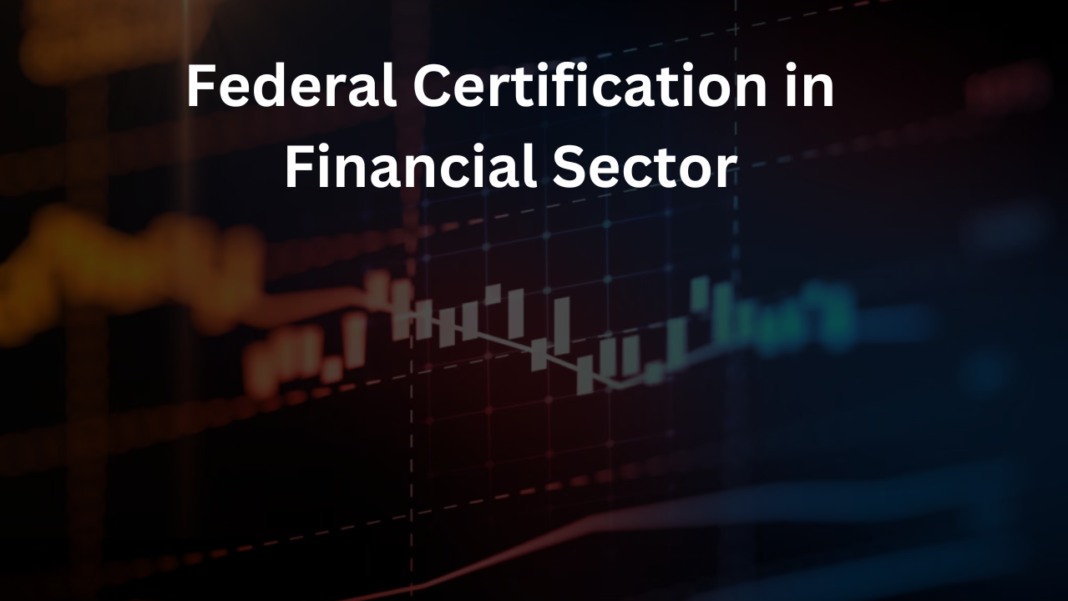Federal Certification in Financial Sector
In the financial sector, trust is paramount. Investors and clients rely on financial institutions to manage their assets and make informed decisions about their financial future. To ensure that these institutions meet the highest standards of professionalism and integrity, various federal certifications are required for professionals in the financial sector. In this comprehensive guide, we will delve into the certifications needed for different roles within the banking and finance sector, including those overseen by the Securities and Exchange Commission (SEC). We will also explore the importance of federal certification in building trust, facilitating federal list building, and enhancing federal sales and marketing efforts.
Check out our detailed article on Overview Of Federal Certifications
1. Federal Certification: A Foundation of Trust
Trust is the bedrock of the financial sector.
Investors need assurance that their money is in capable hands, and clients demand the highest level of ethical conduct from financial professionals. Federal certifications play a crucial role in establishing and maintaining this trust.
2. Roles and Responsibilities in the Financial Sector
The financial sector comprises a diverse range of roles, each with its specific responsibilities and requirements for federal certification. Below, we’ll take a closer look at some key roles and the certifications associated with them:
a. Financial Advisors and Planners
Financial advisors and planners are responsible for guiding clients in making sound financial decisions. To excel in this role, professionals often pursue certifications such as Certified Financial Planner (CFP) or Chartered Financial Analyst (CFA), both of which require a strong understanding of financial markets and investment strategies.
b. Investment Bankers
Investment bankers facilitate capital raising, mergers, acquisitions, and other complex financial transactions. Securities industry certifications, like the Series 7 and Series 79, are essential for professionals in this field. These certifications are overseen by regulatory bodies like the SEC and FINRA (Financial Industry Regulatory Authority).
c. Risk Analysts
Risk analysts assess potential financial risks and develop strategies to mitigate them. The Professional Risk Manager (PRM) and Financial Risk Manager (FRM) certifications are widely recognized in this field.
d. Compliance Officers
Compliance officers ensure that financial institutions adhere to federal regulations and industry standards. The Certified Regulatory Compliance Manager (CRCM) designation is often sought by professionals in this role.
3. Federal Certifications Overseen by the SEC
The SEC is a key regulatory body overseeing various aspects of the financial sector, primarily focusing on securities and investment-related activities. Here are some federal certifications closely tied to the SEC’s oversight:
a. Series Licenses
The SEC requires professionals involved in selling securities to obtain specific licenses, such as the Series 7 (General Securities Representative) and Series 79 (Investment Banking Representative) licenses. These licenses ensure that individuals are well-versed in securities laws and regulations.
b. Investment Adviser Representative (IAR)
Investment advisers who manage client assets typically register with the SEC and must pass Series 65 (Uniform Investment Adviser Law Examination) or Series 66 (Uniform Combined State Law Examination) to serve as IARs.
Check out our article on Federal Certification vs. State Certification
4. Building Trust through Federal Certification
Trust is not just about the integrity of individuals; it’s also about the credibility of financial institutions. By ensuring that their employees hold relevant federal certifications, financial organizations signal their commitment to ethical conduct and regulatory compliance.
Furthermore, trust extends to government agencies and contractors that support the financial sector. Federal list building, a process that involves creating lists of certified contractors and suppliers, helps government agencies identify qualified partners for various projects. Federal sales consultants and government marketing professionals can leverage this information to connect with potential clients effectively.
Also, read our article on Challenges and Criticisms of Federal Certification Processes
5. Federal Sales and Marketing Guide
Federal government marketing in the financial sector requires a strategic approach. Here are some key steps to enhance federal sales efforts:
a. Identify Target Agencies
Determine which government agencies are most likely to require financial services. Focus your marketing efforts on these agencies to maximize your chances of success.
b. Leverage Federal List Building
Access federal lists of certified financial professionals and institutions to identify potential clients and partners. This information can be a valuable resource for federal sales consultants.
c. Build Relationships
Networking and building relationships with decision-makers within government agencies can open doors for federal sales opportunities. Attend industry conferences and events to connect with key stakeholders.
d. Showcase Expertise
Highlight your expertise and certifications in marketing materials. Demonstrating your qualifications can set you apart from competitors in the federal market.
e. Stay Informed
The financial sector is subject to regulatory changes. Stay informed about updates and adapt your marketing strategies accordingly.
Conclusion On Federal Certification in the Financial Sector
Federal certification in the financial sector serves as a linchpin for trust, safeguarding investments and ensuring the highest standards of professionalism and ethics. Professionals in various roles, from financial advisors to investment bankers, pursue certifications to demonstrate their qualifications and commitment to compliance. The oversight of regulatory bodies like the SEC further solidifies the importance of federal certifications in this industry.
For federal sales consultants and government marketing professionals, federal list building provides a valuable resource for identifying potential clients and partners. Building trust and credibility through federal certification can pave the way for successful federal sales and marketing efforts in the financial sector.
Read our article on The Evolution of Federal Certification Standards
In conclusion, federal certification is not just a regulatory requirement; it is a vital component of maintaining the integrity and trustworthiness of the financial sector. By understanding the certifications required for various roles and leveraging them in federal sales and marketing efforts, professionals can navigate the complexities of the federal financial landscape and contribute to a more transparent and trustworthy industry. Trust, after all, is the currency of the financial world, and federal certifications are its gold standard.







